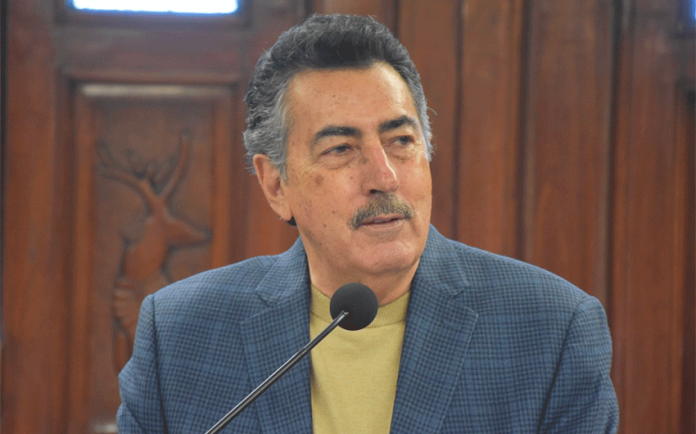It is Mexico’s 13th most violent municipality in terms of homicides per capita, but there are signs that the security situation is improving in Cajeme, Sonora.
There were 30 homicides in the Yaqui Valley municipality in the first 22 days of February for an average of 1.36 murders per day.
Evidently, a lot still needs to be done to bring peace to the municipality, which includes Ciudad Obregón, but this month’s daily murder count is 22% lower than the average in January, when there were 54 homicides in total, and 47% lower than the average during October, the worst month for homicides in 2021 with 79.
The decline in murders comes after a new security strategy involving all three levels of government was announced earlier this month.
In an interview with the newspaper Milenio last Wednesday, Mayor Javier Lamarque boasted that there had been a streak of three days this month with no homicides.
However, the federal government’s daily homicide reports for the first 22 days of February indicate that while there have been seven days this month without a murder in Cajeme, the longest streak without homicides is only two days.
Before this month, according to Milenio, not even one day in more than two decades had passed without a murder. Mexico News Daily was unable to verify that seemingly remarkable claim.
Violence in Cajeme, and many other Sonora municipalities, is largely generated by a turf war between criminal groups affiliated with notorious drug lord Rafael Caro Quintero, who was released from prison in 2013, and other groups controlled by Los Chapitos – the sons of imprisoned drug lord Joaquín “El Chapo” Guzmán.
Lamarque said the new security strategy, which is reviewed and tweaked every morning, is starting to yield results.
“We’ve made significant progress this year. … On February 15, … there were zero homicides,” the mayor said.
“We’re starting to have a sustained decrease,” Lamarque said, adding that the murder data supports his belief that “we’re on the right path.”
There is “intense coordination between the federal government, the state and the municipality,” he said, explaining that they share intelligence and collaborate on security operations and law enforcement.
Lamarque said that dialogue and agreement between authorities is easier because the Morena party holds power in Cajeme, Sonora and nationally.
“We’re people working on a project [to transform Mexico] out of conviction. Of course the president .. is who leads at a national level, here in Sonora it’s the governor [former federal security minister Alfonso Durazo] and I’m part of the project,” he said.
“… We’re at the helm of our municipality to direct security, growth, development and wellbeing … within the framework of the political project that the president of the republic represents.”
